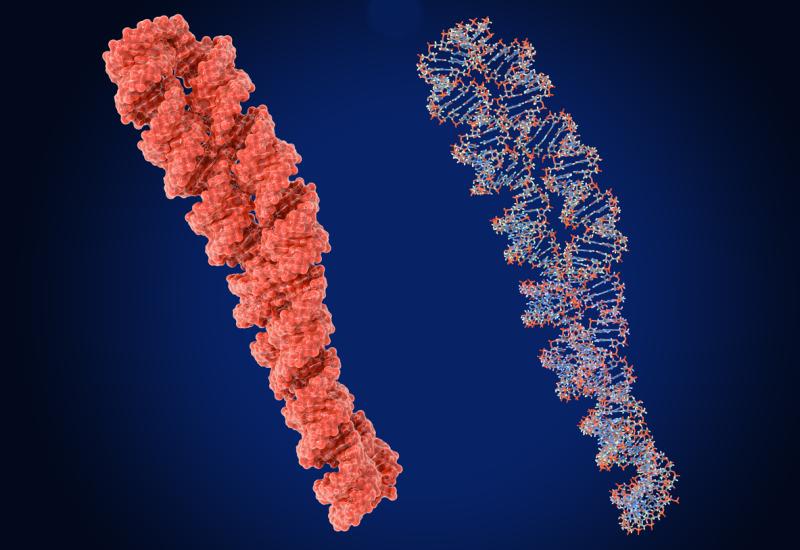
AbbVie steps up for Glenmark's multispecific
The deal for ISB 2001 is worth $700m up front.
The deal for ISB 2001 is worth $700m up front.

Glenmark's trispecific T-cell engager ISB 2001 produced promising data in multiple myeloma at ASCO, but its further development was said to be dependent on finding a partner. Now just one month later AbbVie has stepped forward as that partner, picking up ex-India rights to ISB 2001 in return for an impressive $700m up front.
For crossborder deals involving anticancer multispecifics the tie-up rivals the $800m Bristol Myers Squibb handed across to SystImmune for rights to the latter's EGFR x HER3-targeting ADC izalontamab brengitecan in December 2023. And the latest deal isn't just about oncology, with the partners saying it also includes rights to develop ISB 2001 in autoimmune disease.
Either way, multiple myeloma is where ISB 2001 made its splash, with ASCO hearing of a 79% response rate among 33 patients receiving what was deemed an active dose, 50µg/kg or more, in the phase 1 Trignite-1 trial. The ORR rose to 84% among patients naive to Car-T cells or T-cell engagers, but was still 71% among those who had previously received these therapies.
ISB 2001 is itself a T-cell engager, which hits two antigens, CD38 and BCMA. The former is the target of Genmab's Darzalex, while the latter features the Car-T therapies Carvykti and Abecma, and the T-cell engagers Tecvayli and Elrexfio. As such, the fact the ASCO data also showed a 72% ORR in patients refractory to anti-CD38 treatment was notable.
Though Glenmark is ISB 2001's originator, the deal is routed through Ichnos Glenmark, which is effectively the Indian company's US subsidiary. Trignite-1, which aims to enrol 80 late-line multiple myeloma patients, appears to be ISB 2001's only current clinical study, according to clinicaltrials.gov and OncologyPipeline.
Myeloma latecomer
For AbbVie this kind of move has been a long time coming. The company has a key presence in haematological cancers through its $21bn acquisition of Pharmacyclics, but in multiple myeloma specifically it has lagged the likes of Johnson & Johnson and Bristol Myers Squibb.
Its most advanced project here is probably the anti-BCMA T-cell engager etentamig, the result of a 2021 deal with TeneoOne worth $90m up front. Etentamig entered the phase 3 Cervino study just over a year ago. Also relevant, in light of the latest tie-up, was an option AbbVie acquired in January over potential rights to Simcere’s SIM0500, a T-cell engager against BCMA and GPRC5D.
The value of the Simcere deal wasn't disclosed, but the BCMA x GPRC5D space is notably more crowded than the one for BCMA x CD38. The former features J&J's JNJ-79635322 as the asset to beat at present, while the latter comprises just a handful of assets, with ISB 2001 being the only T-cell engager, according to OncologyPipeline.
Whether, having bought actual rights to ISB 2001, AbbVie still sees any mileage in exercising the option on SIM0500 is a question Simcere will now ponder.
BCMA x CD38 projects in industry development for multiple myeloma
| Project | Company | Description | Status |
|---|---|---|---|
| ISB 2001 | AbbVie/Ichnos Glenmark | Trispecific T-cell engager | Global ph1 Trignite-1; data at ASCO 2025 |
| Unnamed | Cellyan Therapeutics | Bispecific Car-T | Clinical data published in 2021, status unknown |
| Aleta-005 | Aleta Biotherapeutics | Anti-BCMA Car-T that secrets BCMA-anti-CD38 bridging protein | Preclinical |
| Unnamed | BriStar Immunotech | Bispecific Car-T | Discontinued in preclinical |
| Unnamed | iCell Gene Therapeutics | Bispecific Car-T | Discontinued in preclinical |
Source: OncologyPipeline.
2972













